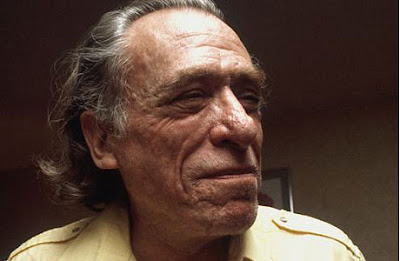twelve hours working
yesterday i saw myself immersed once more in my thesis, whose progress had become strained and sporadic over the holidays. i managed to pull away long enough to eat lunch and dinner, but probably only because my yin reminded me to. this got me thinking:
it's a funny thing how the mind words.
if it doesn't want to do something, then there are a million obstacles, diversions and complications. if it does want to do something, there are a million reasons, excuses and obligations. i've experienced both of these in the past weeks, and it seems absurd that something so banal could result in such extreme reactions.
Patanjali classifies these phenomena as two of the five kleshas, which are afflictions of the mind that result from separation from the divine:
the genealogy of the mind
the first klesha is avidya, ignorance as to the divinity of all things. this ignorance is not to be confused with doubt or questioning, which are just as likely to arise from curiosity or misperception, but rather indicates a far more fundamental problem – the experience of not knowing at all, of truly forgetting that everything is perfect (i.e. obeying karma) just the way it is:
dominoes, mother f**ker!
the second klesha is asmita, (mis)identification with assorted sordid entities, which results from our ignorance of the truth. the most common of these entities is the mind itself, causing so many people to walk around believing their thoughts. by doing this we limit ourselves, tying our soul to a specific thoughtform (vritti) that reinforces our sense of I, me and mine (ahamkara) .
for example, if i truly identify with being a "student," then what happens five months from now when that term no longer applies? i have to run out and grab another thoughtform, like "graduate" or "unemployed bum."
one of my favorite bums, unemployed since 1994
the third klesha is raga, our tendency to run towards the things that give us pleasure. these are the behaviors and objects that reinforce whatever thoughform we've latched onto: capitalists accumulate capital, consumers consume, and drug addicts use drugs. it turns into a vicious cycle, with each activity feeding the (mis)identification, and the (mis)identification directing one the sources of his or her desire.
the tricky thing, of course, is differentiating between raga and fulfilling one's dharma, the path to which we must abide to realize our proper place in the universe. my thesis, for instance, is part of my dharmic responsibility, but if i use it merely to reinforce my (mis)identification then i've missed the whole point.
this is never beside the point.
the fourth klesha is dvesha, avoidance of the things that bring us pain. raga inevitably leads to dvesha, just ask any capitalist turned philanthropist or alcoholic turned anonymous. these are still (mis)identifications, though, and rarely do our aversions coincide socially responsible behavior. it's far more common for to run away from the things we need to face, the feelings we need to experience – why else would one hoard all that money in the first place?
Warren Buffet, capitalist turned philanthropist
the fifth and final klesha is abhinivesha, the fear that keeps us clinging onto the impermanent world we typically call "life." no matter how many things we run away from, no matter how many things we run towards – we will never be able to soothe the disquietude that comes from not knowing who we truly are.
it's a slippery slope from ignorance to (mis)identification, and as far as i can tell it's unavoidable on this plane of existence. but the point of a spiritual practice (or at least mine) isn't to transcend these things, and i suspect i have at least as many lifetimes ahead of me as an oak tree has acorns.
i'm okay with this.
i'm okay with this because three years ago had a vision at Lake Worth's Annual Street Painting Festival. it was of the same festival, of the same park, but eighty years into the future. i was overcome by the realization that everyone i saw in the park, all the families and parents and running children, would be gone in eighty years. immediately i understood that i would be dead, too. i thought to myself:
yes, this is true.
there was no fear, no dread, only the calm acceptance of something so obvious. accompanying this, however, was the quiet certainty that it made no difference: the body i inhabit is temporary, the mind i call my own is ever-changing, but the me "I am" is neither.
there is no need to fear death, no need to seek liberation;
the last desire to fall away
before enlightenment
is the desire for Enlightenment
before enlightenment
is the desire for Enlightenment
the belief in a 'destination,' the yearning for 'transcendence,' the search for the 'divine' – these are symptoms, not solutions. they are born in ignorance, and i remind myself everyday that every thoughtform to which i attach myself – even those that are 'spiritual' – will someday find themselves in that Lake Worth graveyard.
front cover of my 2010-2011 day planner








No comments:
Post a Comment